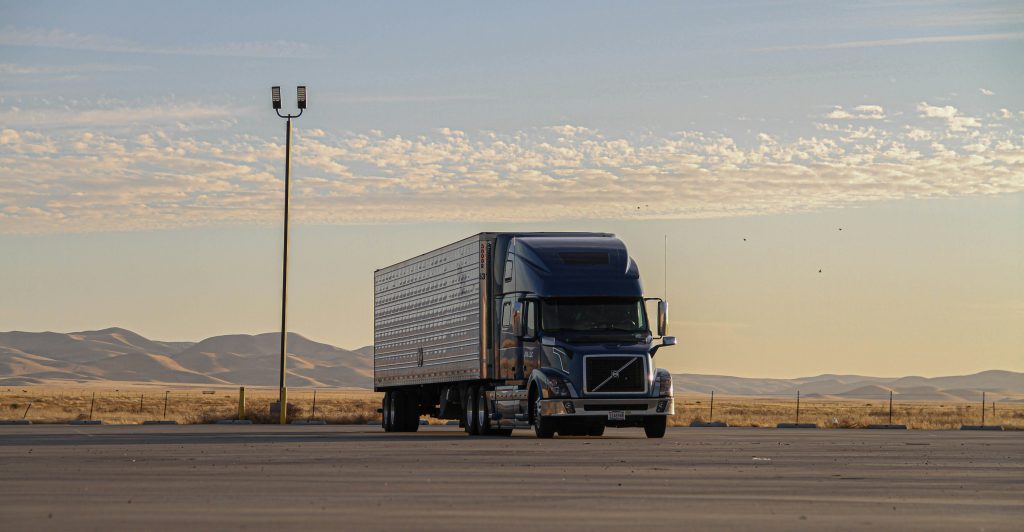Trucking Logistics: An Overview

Introduction to Trucking Logistics
This sector ensures that products move efficiently from manufacturers to consumers, often covering vast distances. The efficiency of trucking logistics directly impacts delivery times, costs, and overall customer satisfaction. Understanding this involves exploring its key components, fleet management strategies, and the role of software solutions in optimizing operations.
Key Components of Trucking Logistics
Logistics in trucking encompasses several essential elements that work together to ensure the smooth transport of goods. Here are the primary components:
Route Optimization
Effective route planning is crucial for minimizing fuel consumption, reducing travel time, and avoiding delays. Advanced logistics software uses algorithms to determine the most efficient routes, taking into account factors such as traffic, road conditions, and delivery schedules.
Load Planning
Load planning involves determining the best way to arrange goods within a truck to maximize space and ensure safe transport. Proper load planning reduces the number of trips needed and minimizes the risk of damage to goods.
Fleet Maintenance
Regular maintenance of trucks is essential to prevent breakdowns and ensure safety. A well-maintained fleet is more reliable and cost-effective. Logistics companies implement maintenance schedules and use telematics to monitor vehicle health.
Compliance and Regulations
Trucking logistics must adhere to various regulations, including driver hours of service, weight limits, and safety standards. Compliance ensures legal operation and avoids penalties.
Communication and Coordination
Effective communication between drivers, dispatchers, and logistics managers is vital for smooth operations. Real-time communication tools and tracking systems help coordinate activities and respond quickly to any issues.

Fleet Management Strategies
Fleet management is a critical aspect of trucking logistics, focusing on maximizing the efficiency and performance of a fleet of trucks. Here are some key strategies:
Implementing a preventive maintenance program helps identify potential issues before they become major problems. Regular inspections and servicing ensure that trucks remain in good condition and reduce downtime.
Investing in driver training programs enhances safety and efficiency. Well-trained drivers are more likely to adhere to regulations, drive responsibly, and handle unexpected situations effectively.
Monitoring fuel consumption and optimizing driving habits can lead to significant cost savings. Fuel management systems track fuel usage, identify inefficiencies, and suggest improvements.
Using GPS and telematics, logistics companies can track the location and status of their trucks in real-time. This information helps in route planning, monitoring delivery progress, and ensuring timely maintenance.
Analyzing data collected from various sources, such as telematics, fuel management systems, and maintenance records, provides insights into fleet performance. Data-driven decisions help improve efficiency and reduce costs.

Software Solutions for Trucking Logistics
Modern trucking logistics relies heavily on software solutions to streamline operations and improve efficiency. Here are some key software solutions:
Integrated Solutions
Integrated logistics solutions combine multiple functionalities, such as TMS, fleet management, and telematics, into a single platform. This integration provides a holistic view of logistics operations and simplifies management.
TMS software helps logistics companies plan, execute, and optimize the movement of goods. It provides tools for route planning, load optimization, and real-time tracking, enhancing overall efficiency.
Freight management software simplifies the process of managing shipments, from booking and documentation to tracking and delivery. It ensures that goods are transported efficiently and on time.
Telematics systems collect data on vehicle location, speed, fuel consumption, and driver behavior. This data is used to monitor fleet performance, identify inefficiencies, and improve safety.

Benefits of Efficient Trucking Logistics
Efficient trucking software offers numerous benefits for businesses and customers alike:
Cost Savings
Optimizing routes, managing fuel consumption, and maintaining vehicles reduce operational costs. Efficient logistics minimize waste and maximize resource utilization.
Improved Customer Satisfaction
Timely and reliable deliveries enhance customer satisfaction. Efficient logistics ensure that products reach customers as expected, building trust and loyalty.
Enhanced Safety
Implementing preventive maintenance and driver training programs improves safety. Well-maintained trucks and skilled drivers reduce the risk of accidents and breakdowns.
Increased Productivity
Streamlined logistics operations increase productivity by reducing delays and downtime. Efficient use of resources ensures that more goods are transported with fewer resources.
Competitive Advantage
Businesses with efficient logistics operations can offer better service at lower costs, gaining a competitive edge in the market. They can respond more quickly to market demands and changes..
How Linbis Helps Companies with Trucking Logistics
Linbis offers a comprehensive suite of logistics software solutions designed to optimize trucking logistics operations. Here’s how Linbis can support your trucking business needs:
Transportation Management
Linbis’s transportation management system (TMS) provides advanced route planning, real-time tracking, and load optimization tools. This ensures efficient and cost-effective transportation of goods.
Fleet Management
Linbis offers robust fleet management software that includes vehicle tracking, maintenance scheduling, and driver performance monitoring. This helps logistics companies maintain a reliable and efficient fleet.
Freight Management
Our freight management software streamlines the process of managing shipments, from booking to delivery. Linbis handles documentation, tracking, and communication with carriers, ensuring smooth and efficient freight operations.
Telematics Integration
Linbis integrates telematics systems to provide real-time data on vehicle performance, location, and driver behavior. This data helps logistics managers make informed decisions and improve fleet efficiency.
Customizable Solutions
Linbis logistics software is highly customizable and integrates seamlessly with existing business systems. This ensures a smooth implementation and enhances the overall efficiency of trucking logistics operations
FAQ
What is trucking logistics?
Trucking logistics involves the planning, implementation, and control of the movement and storage of goods transported by trucks. It includes route optimization, load planning, fleet maintenance, and compliance with regulations.
How can fleet management software improve trucking logistics?
Fleet management software improves trucking logistics by providing tools for vehicle tracking, maintenance scheduling, and driver performance monitoring. It helps optimize fleet operations, reduce costs, and improve safety.
What are the benefits of using transportation management systems (TMS)?
Using TMS software offers several benefits, including optimized route planning, real-time tracking, load optimization, and enhanced efficiency. TMS helps logistics companies reduce costs and improve delivery times.
How does Linbis help with trucking logistics?
Linbis offers a suite of logistics software solutions, including TMS, fleet management, and freight management software. These tools help optimize trucking logistics operations, improve efficiency, and reduce costs.
What strategies can improve fleet management?
Strategies to improve fleet management include implementing preventive maintenance programs, investing in driver training, monitoring fuel consumption, using telematics for real-time tracking, and analyzing data for informed decision-making.
Conclusion
Trucking companies are a vital component of the supply chain, ensuring that goods are transported efficiently and cost-effectively. By understanding the key components of trucking logistics, implementing effective fleet management strategies, and leveraging advanced software solutions, businesses can optimize their logistics operations and gain a competitive edge.
For more information on how Linbis can help streamline your trucking logistics operations, visit Linbis Logistics Software and explore our comprehensive solutions designed to meet your business needs
